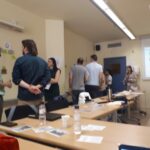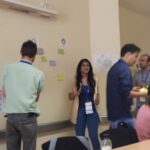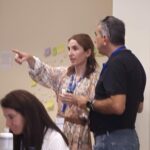Why this workshop?
Motivations for this workshop
Modern day corporate social responsibility started to develop and gain awareness in the 1950’s. Currently, awareness on ethical, social and environmental topics is growing and there has been a rising demand for ethical, socially conscious environmentally-friendly business practices. We see this workshop as an opportunity for the Research Challenges in Information Science (RCIS) community to bring ethical, social and environmental accounting (ESEA) to the RCIS conference series, in order to identify its strong points and to discover the topics in which it can improve.
During our research, we have discovered motivations that drive organisations into conducting ethical, social and environmental accounting. In the following, we present some of them, in order of relevance, arguing why we consider them to be important for the RCIS community:
- Improvement planning. The accounting can be performed to discover the points of improvement within an organisation. For example, that the CO2 footprint can be reduced or that the employee satisfactory level can be increased. This is the main motivation that we would like to stress within ESEA4RCIS. This workshop gives the RCIS community the chance to identify what ethical, social and environmental topics could be improved, allowing the definition of improvement plans that, when carried out, would effectuate the change, increasing the social and environmental performance over the years.
- Strategic management. The results of the account can be used to manage an organisation at the strategic level. In our case, the RCIS Steering Comittee, as well as the General, Programme, and Organisation Chairs of future editions can use the results of this accounting process to make informed decisions and manage the conference series and the community in a more responsible way.
- Intrinsic motivation. Within the RCIS community, there are shared interests in topics related to social responsibility, sustainability, open science, etc. In ESEA4RCIS we will be able to assess how the RCIS conference series is performing.
- Marketing and identity. Organisations often want to use the results of their social and environmental account for marketing purposes. For example, for attracting more customers of a product or service they are selling or for attracting more donations. While the RCIS conference series might not have a special interest in this type of marketing, another perspective to this motivation is building our identity as positive change-makers, which undoubtedly would bring additional pride and purpose to the community.
- Public pressure. Concerns of the public, such as suppliers, shareholders and the media about the ways companies fulfil their social and moral responsibilities can create pressure for participating in social and environmental accounting. Currently, scientific conferences are not in the spotlight nor feeling pressure to disclose their ethical, social and environmental performance. However, proactively adopting these practices is an opportunity to lead the way and show commitment and responsibility.
Other motivations of organisations that we find less relevant to the RCIS community are assessing compliance with its own declared or aspired values, attracting human capital that share the same values, obtaining a certification, justifying funding, and complying with governmental obligation and regulations (definitely not the case of scientific conferences).
This workshop and the accounting process that it entails does not intend to make a severe judgement on the performance of the RCIS series of conferences on ethical, social and environmental, but to investigate how ESEA practices can be adapted to be applied to scientific conferences and to discover how the community can improve this performance further. We are convinced that the community is ready for the reflection process that an ethical, social and environmental accounting triggers.
Credits of the header photograph: “Parc Güell, Barcelona” by unicoletti is licensed under CC BY-SA 2.0






